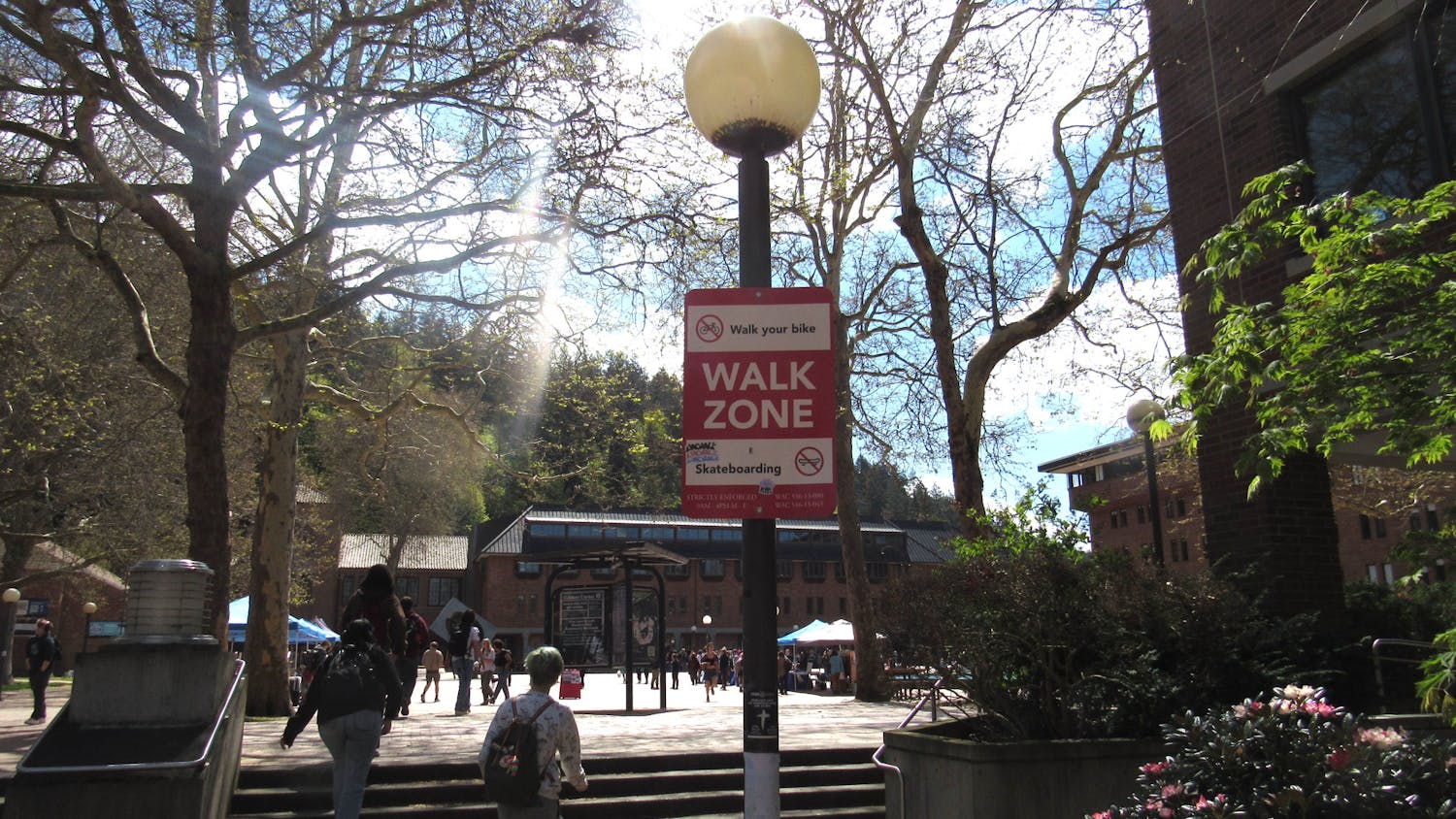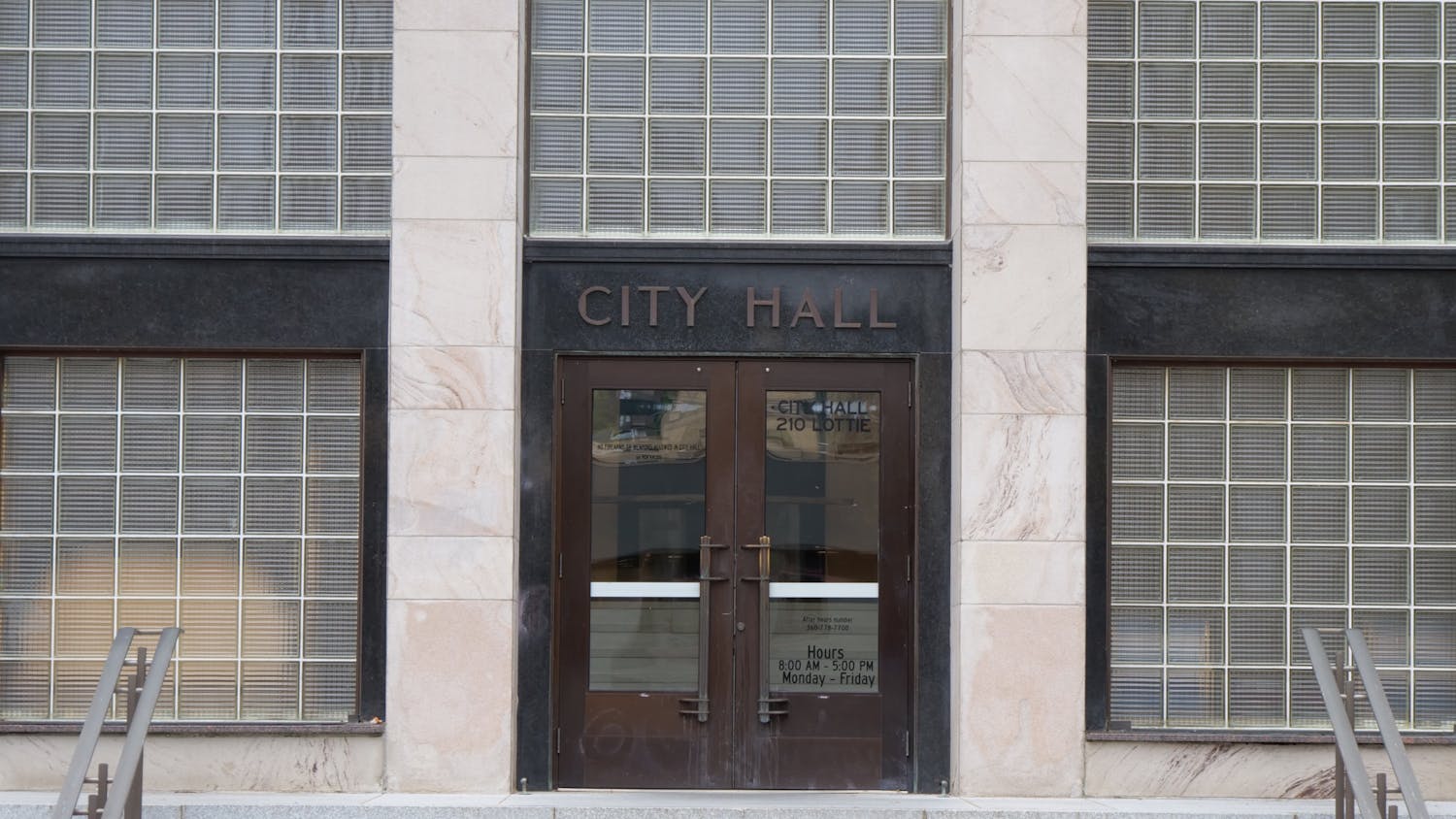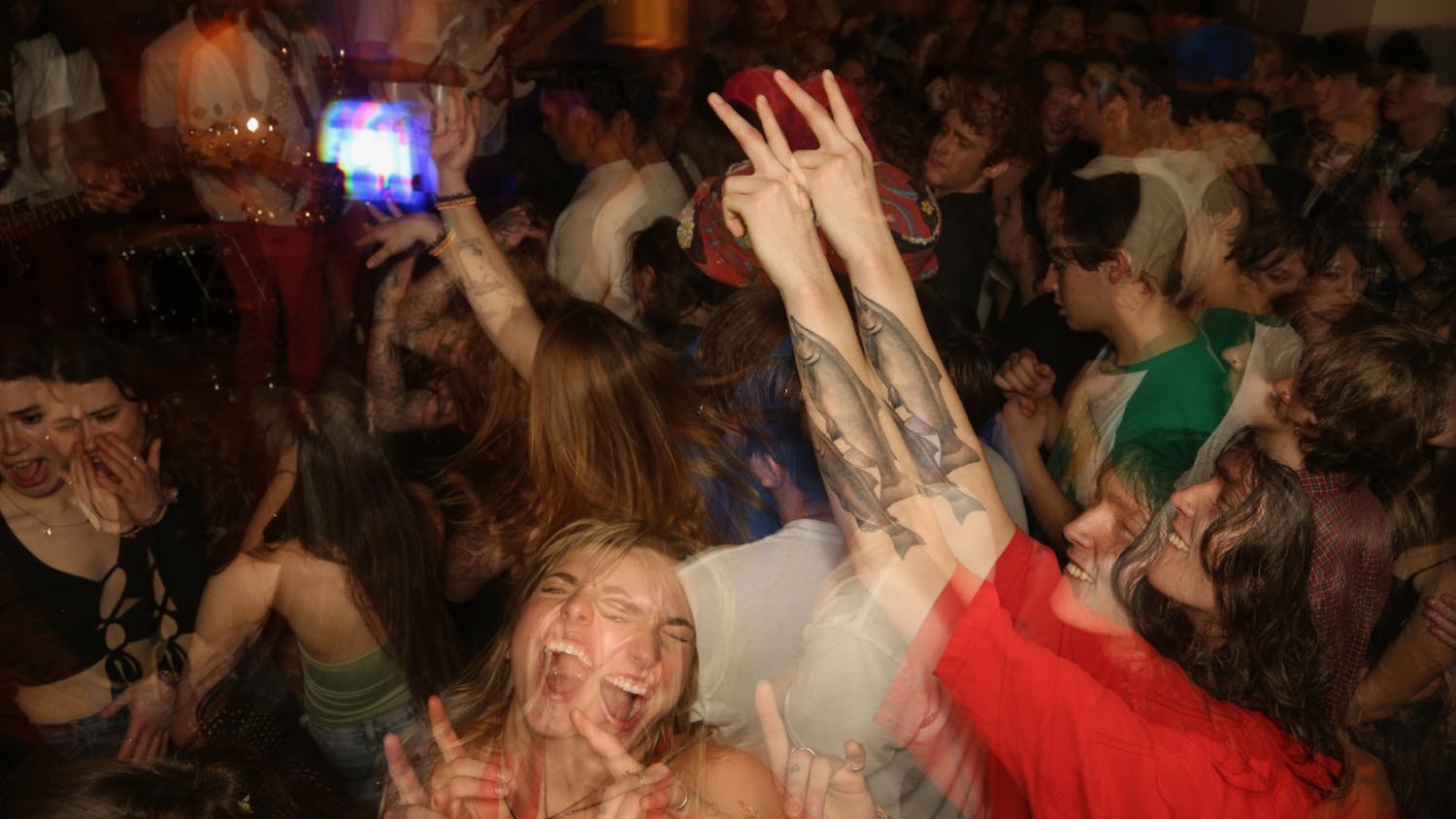Americans generate about 4.9 pounds of trash per person per day, according to a 2018 report by the U.S. Environmental Protection Agency. They produce an extra 25% of waste from Thanksgiving to New Year’s.
WWU Zero Waste is working to combat excess waste by promoting sustainability through a wide range of free, on-campus events and resources this season.
WWU Zero Waste is a program of Western Washington University’s Associated Students Recycle Center. Co-coordinators and student employees Ethan Granat and Emma McGreevy conduct campus waste audits to measure the rates of recycling, trash and compost. The team also hosts events to promote engagement in zero waste activities, spread awareness and educate students on topics like recycling and composting, Granat said.
“There’s a lot of overconsumption and overproduction of material during the holiday season,” Granat said. “Of course we encourage gift giving, but we think we can find alternatives, like making gifts out of waste.”
The team held an event inviting students to make wrapping paper and cards out of recycled paper on Thursday, Dec. 7.
They also hoped to host an event teaching kintsugi, the Japanese method of repairing and restoring broken ceramics with gold lacquer.
“It sounds funny. It’s like giving someone a broken plate as a gift, but it’s actually quite beautiful,” Granat said.
Students could then wrap their gold-laced ceramics with furoshiki cloth. This traditional Japanese fabric can be used over and over again, unlike wrapping paper, which is thrown away after a single use, Granat added.
The eco-friendly gift-giving event is still in the planning stage, so no date has been set. But students can watch out for details on the program's Instagram page.
WWU Zero Waste holds workshops to help make reusable alternatives more accessible to students who may not have the means to purchase them themselves, Granat said.
“Zero waste is inaccessible to a lot of people because the price points for buying reusable alternatives are pretty high,” Granat said. “I don’t live a super zero-waste lifestyle because of how expensive it is.”
As part of their mission to promote sustainability, the program held a beeswax wrap event in November.
Beeswax wrap is a piece of cotton fabric that is soaked in a mixture of beeswax, jojoba oil and pine resin. The wraps are used as alternatives to single-use plastic, like Ziploc bags or plastic wrap. But they can be expensive, which is one reason WWU Zero Waste held the event, Granat said
“I use mine for wrapping up my croissants that I take to school every day,” Granat said. “They’re great because they’re sticky, so you can stretch and wrap them around anything.”
The event was held in the Makerspace, located in Western’s Ross Engineering Building.
The Makerspace is a workspace with crafting resources, including 3D printers, laser cutters, sewing machines and space to work. It is open to any student of any major, paid for by the students’ technology fund, said Makerspace student attendant Arthur Hamilton.
To use the space, students must complete a Canvas module for the machine they want to use, which has information on safety, how to use the machine and what kind of projects they could make, Hamilton said. Then students create one practice project, with optional help from staff, to certify they’ve learned how to use the machine.
This space is a free resource students can use to save money. Western student Ethan Griffith, for example, uses the Makerspace to print stickers.
“I’ve been wanting to make stickers for a while, but the materials are expensive, like the big sticker cutting machines,” said Griffith. “I was very thankful to find out that [Western] has [the resources available].”
Griffith sold the stickers he made at a student craft fair. He said he would like to continue using the Makerspace to make stickers until he graduates, but after that, he’s not sure he’ll be able to continue.
Other students and clubs have used the space for events. Planned Parenthood Generation WWU put on a Condom Fashion Show in May 2023.
“They gave each group hundreds of [expired] condoms and said, ‘Make a costume with this,’” Hamilton said. “So there were all these people sewing with condoms.”
The Makerspace is open from 12 to 5 p.m. Monday, Tuesday and Friday and from 12 to 9 p.m. Wednesday and Thursday in room 251. Students can reach the Makerspace staff by email at makerspace@wwu.edu.
Kiora Surratt (she/her) is a campus life reporter for The Front. She is a senior majoring in public relations and minoring in English literature. In her free time, she enjoys working out, shopping and spending time with friends and family. You can reach her at kiorasurratt.thefront@gmail.com.






